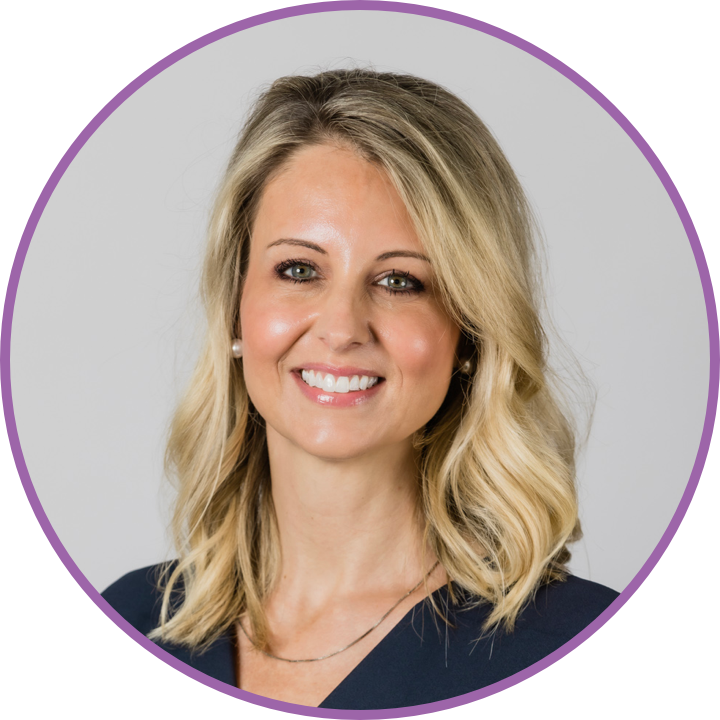
Dr Kelly Hankins
MD, FACOG, FRANZCOG
Obstetrician & Gynaecologist
Dr Kelly Hankins’ approachable nature and positive "can-do" attitude has earned her a reputation as a cherished obstetrician and gynaecologist.
Dr Kelly Hankins has over 12+ years of experience in women’s health. She completed her basic obstetrics and gynaecology training in the United States, where she had the privilege of learning from internationally renowned obstetricians and gynaecological surgeons. After settling in Australia, she gained further experience on the North Shore of Sydney and in Western Sydney before joining the Central Coast Local Health District as a specialist in 2014.
Dr Hankins currently holds the role of RANZCOG training supervisor. She also has sigificant volunteer experience having volunteered as a surgeon treating women with pelvic organ prolapse in Nepal.
Dr Hankins delivers obstetric patients only at Gosford Hospital, however she still performs gynaecological surgery at both Gosford Private and Gosford Hospitals. She believes in providing safe, evidence-based obstetric care, and intentionally looks after a limited number of patients in order to be able to provide quality care and be available when needed.
Dr Hankins prides herself on a low emergency caesarean rate and a commitment to helping patients who desire a vaginal birth achieve that goal.
Dr Hankins understands that gynaecological concerns can affect all aspects of a woman’s life, and believes that it is important for women to be heard without judgement and to have any concerns addressed with understanding and professionalism. She strongly believes in educating patients about their health and empowering them to make informed decisions about their care. By partnering with her patients and determining their goals for treatment, Dr Hankins helps to restore confidence, restore quality of life, and get women back to doing what they love to do.
Dr Hankins offers tailored management for a range of gynaecological problems. This may include medical management, analgesia, physiotherapy, and/or surgery, depending on clinical symptoms and shared goals for treatment. She also offers minimally-invasive surgical treatment for many gynaecologic conditions, including laparoscopic hysterectomy.
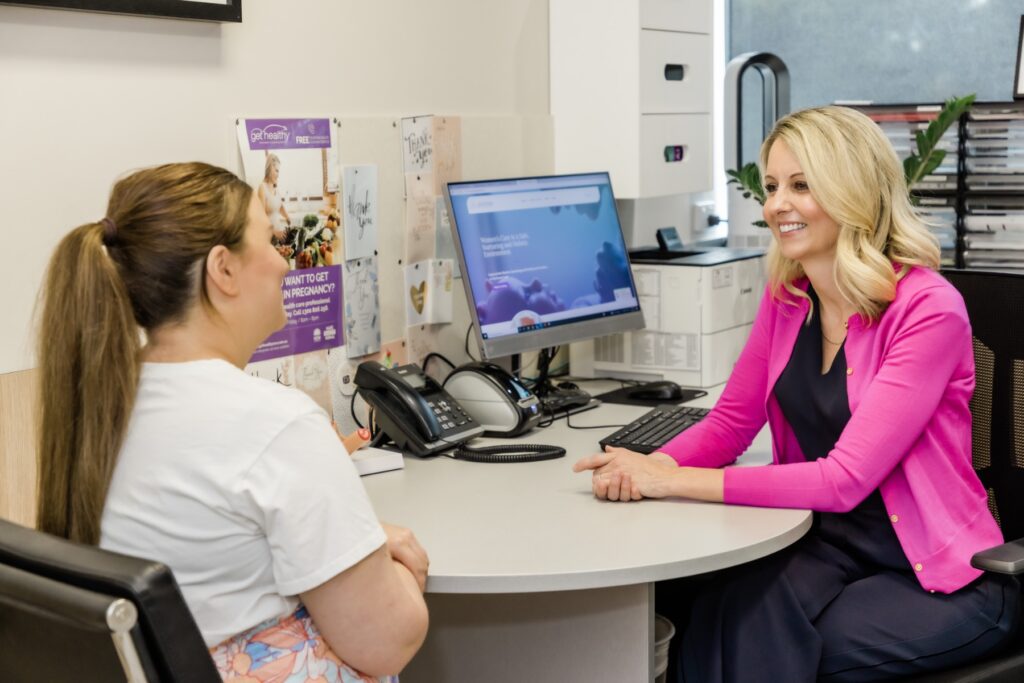
In her free time, Dr Hankins enjoys spending time with her husband and two children, traveling, running, and enjoying the outdoors.
- Fellow of the Royal Australian & New Zealand College of Obstetrics & Gynaecology (FRANZCOG)
- Fellow of the American Congress of Obstetricians & Gynecologists (FACOG), USA
- Doctor of Medicine (MD), USA
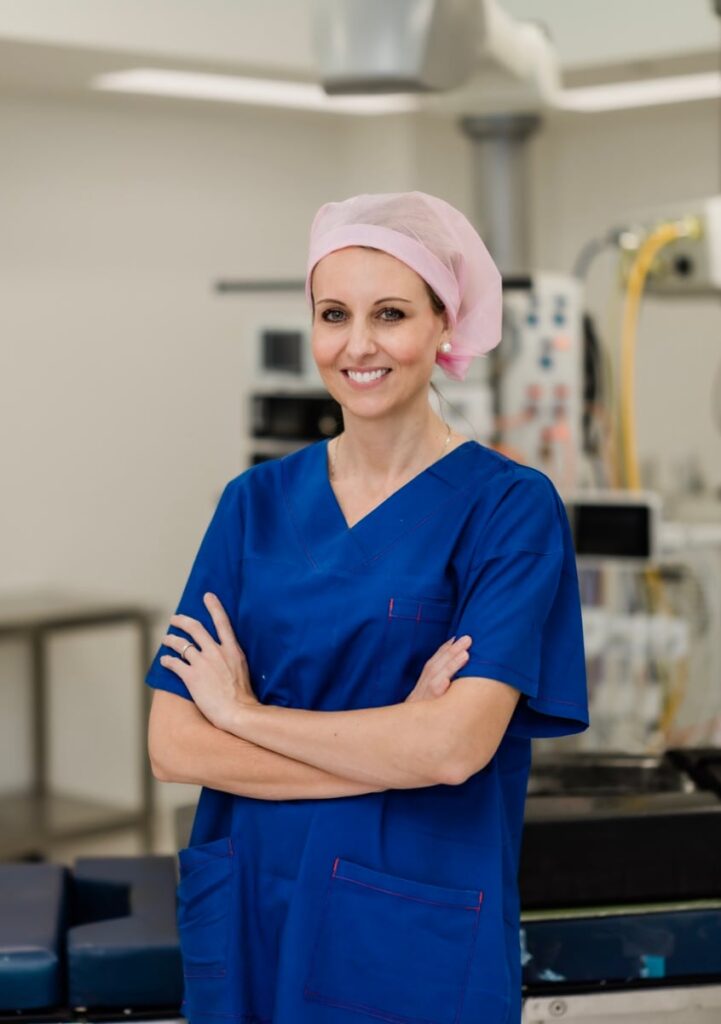
Questions & Answers with Dr Kelly Hankins
There are so many reasons I chose to specialise in obstetrics and gynaecology! I love supporting women throughout their lifetime and love the continuity of care that the speciality provides. My job allows me to care for families, teach doctors-in-training, and advocate for women in my community. From a medical perspective, there is a huge variety in my day-to-day work – consulting, teaching, operating, and birthing babies – which keeps things interesting!
Obstetricians and midwives have the immense privilege of caring for women during what is hopefully one of the most joyous times of their lives. Our patients allow and trust us to be part of one of their most intimate experiences – birthing a child and becoming parents. I love learning about what is important to each of my patients and their partners, and helping them to have the birth experience and become parents in the way that is right for them.
The days can be long, and the nights longer (!). The good days are incredible, and the bad days can nearly break you. Don’t do it unless you can’t imagine doing anything else, and be sure to build a network of trusted mentors and supportive colleagues. I think that practicing obstetrics and gynaecology provides a fulfilment that few vocations do. I think it’s the best job in the world.
Just go with it and be kind to yourself. The first 12 weeks are the hardest. Don’t be afraid to spend as much time as you want or need to just feeding and holding your baby. They all sleep and eat eventually!
Dr. Kelly Hankins offers robotically-assisted gynaecologic surgery at Gosford Private Hospital.
Procedures performed include hysterectomy, ovarian cystectomy, and excision of endometriosis for certain women.
The state-of-the-art da Vinci Xi surgical system offers a variety of advantages over traditional laparoscopy; however, both are considered minimally-invasive surgery. The surgeon performs the majority of the procedure from the robotic console. Compared to laparoscopy, the robot offers increased range of motion, improved dexterity, and enhanced visualisation, which is especially critical when working around delicate pelvic structures.
Patients are often able to go home after a short stay in hospital, and most women report little or no significant pain after surgery.
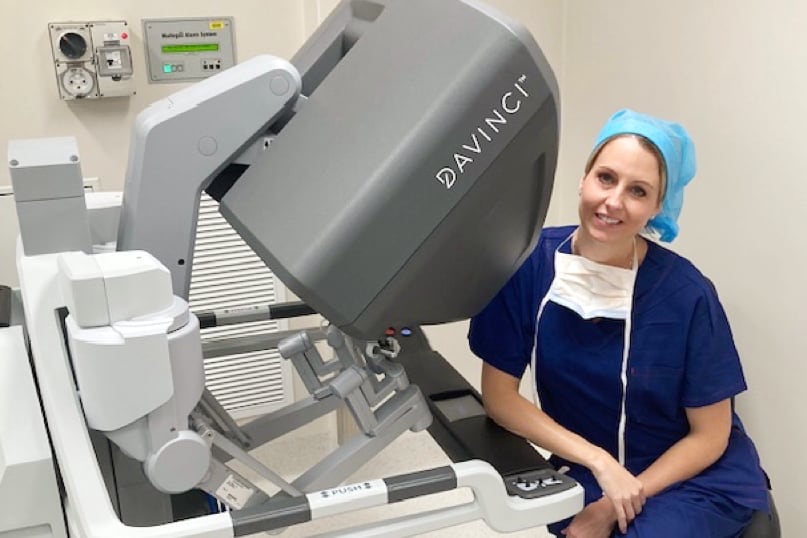
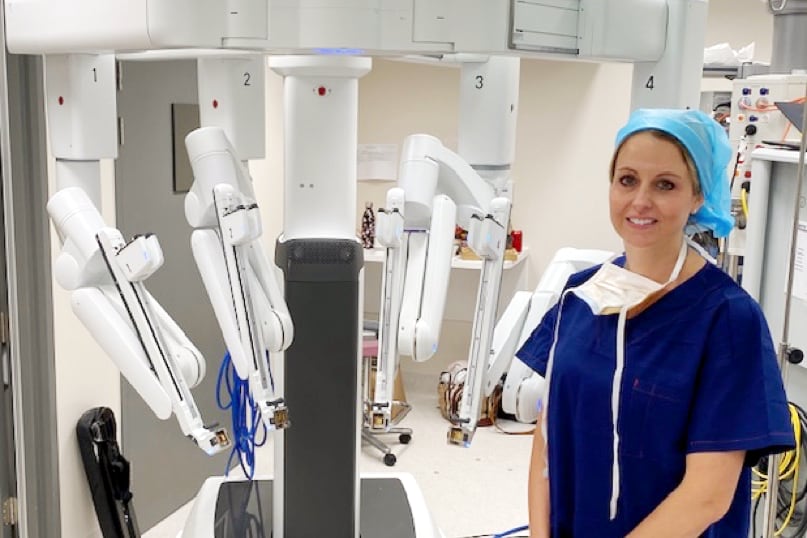
Get in touch
If you wish to make a booking with one of our specialists or allied health team, please get in touch with our friendly support staff.
We understand the need for women-led care and have an easy referral system to other health care professionals who provide a range of services specialised to your individual needs.